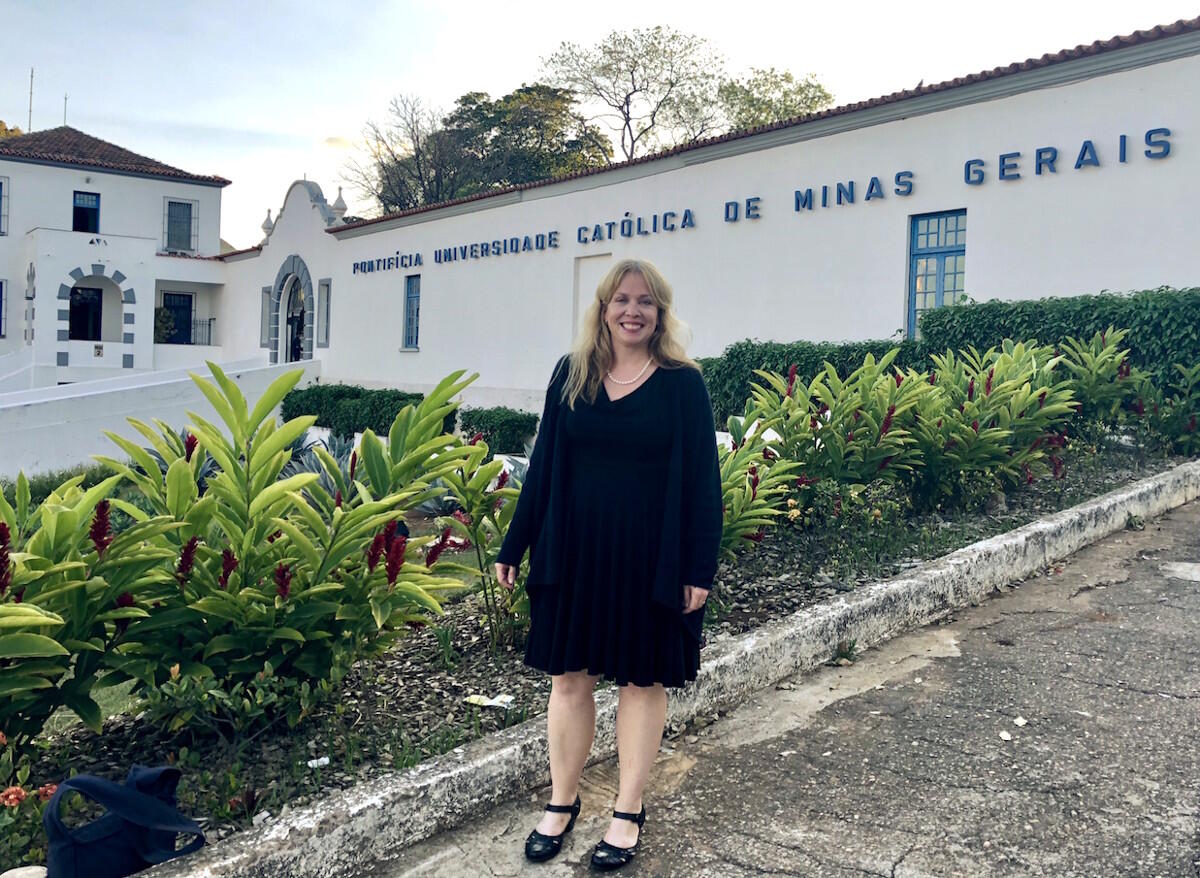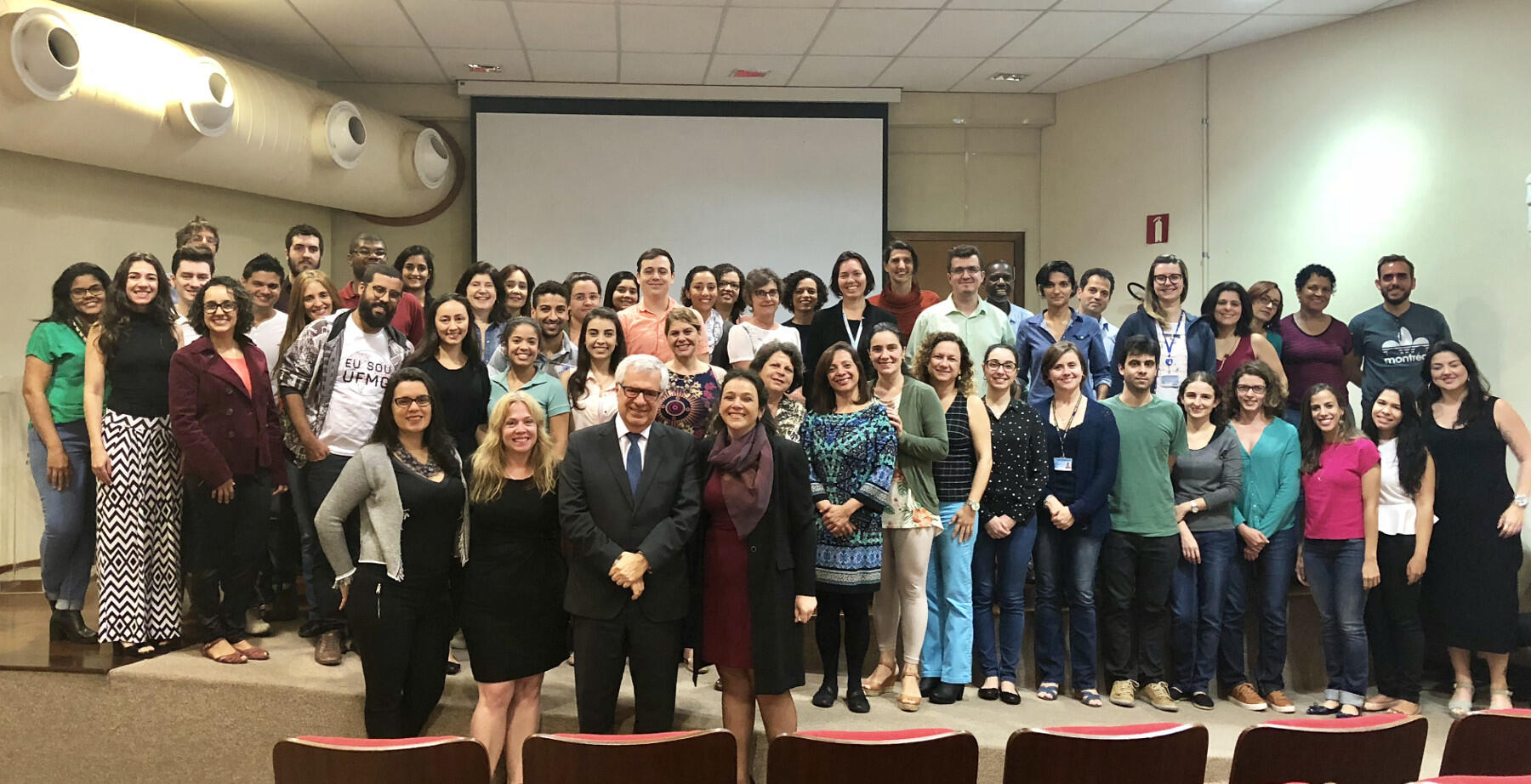Sept. 18, 2018
In Brazil, VCU Fulbright specialist trains higher education institutions to make their campuses more global
Share this story

Jill Blondin, Ph.D., interim executive director of the Virginia Commonwealth University Global Education Office, recently spent two weeks in Brazil as a Fulbright specialist helping higher education institutions develop strategies for making their campuses more global.
“Internationalization really means opening up an institution — its students, faculty, administrators and staff — to global opportunities in teaching, learning, research and community engagement,” Blondin said.
She spent her time in Brazil collaborating with industry peers on steps they can take to generate those opportunities, including creating education abroad programs, promoting international research and recruiting international students.
The Fulbright Specialist Program pairs highly qualified U.S. academics and professionals with host institutions abroad to conduct two- to six-week projects that support the host institution's priorities and goals. Blondin was invited by Universidade Federal de Minas Gerais in Belo Horizonte, Brazil, as part of a larger strategy by the Brazilian government to internationalize campuses throughout the country.
Blondin’s time at Minas Gerais included strategic consultations with administrators from five universities, sharing her impressions of collective internationalization efforts underway in the country.
“For many years, most higher-ed globalization efforts in Brazil relied heavily on providing individual scholarships to students to study abroad,” Blondin said. “However, there has been a shift to looking at global strategies from an institutional perspective, which includes initiatives like developing international partnerships, curricular change and providing enhanced services to international students studying in the country.”
She delivered a series of lectures covering innovative approaches to internationalization, global learning and professional development. “We discussed things like providing global experiences to students while they’re still on campus, like partnering with locally headquartered international businesses to provide student internships,” she said. For example, one university is across the street from a Japanese-owned corporation that could provide global experiences to students while they are still close to campus.
VCU, Blondin said, has been an incubator for ideas regarding internationalization. VCU Globe, the university’s global education living-learning community, under her direction has received two national awards for its initiatives. They included implementing student-run workshops on American life and customs for VCU’s 1,500 international students; volunteering in clinics, schools and literacy centers in Richmond’s immigrant neighborhoods; and tutoring children in Zapotec villages in Oaxaca, Mexico, through one of the program’s study abroad opportunities.

Blondin’s visit to Brazil culminated with a three-day workshop that covered a range of topics such as using technology in the classroom to connect students with their counterparts around the world and creating a forum for international students to share their culture while on campus. Blondin said she hopes these efforts continue on the campuses she visited.
“While I was able to share my expertise, I’ve also learned a lot from these institutions,” she said. “I learned about all of the great teaching, research and service that these universities are doing — and that the faculty and staff there are as committed to student success as we are at VCU.”
Subscribe to VCU News
Subscribe to VCU News at newsletter.vcu.edu and receive a selection of stories, videos, photos, news clips and event listings in your inbox.







